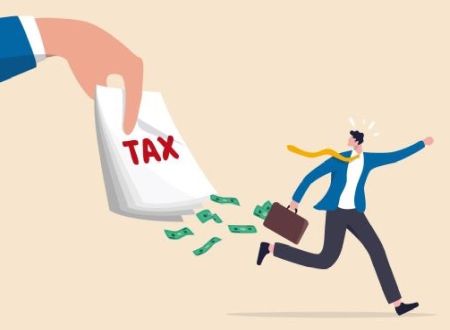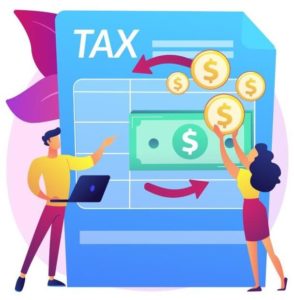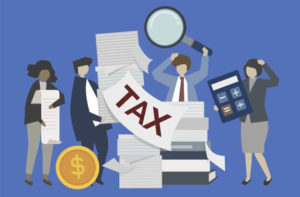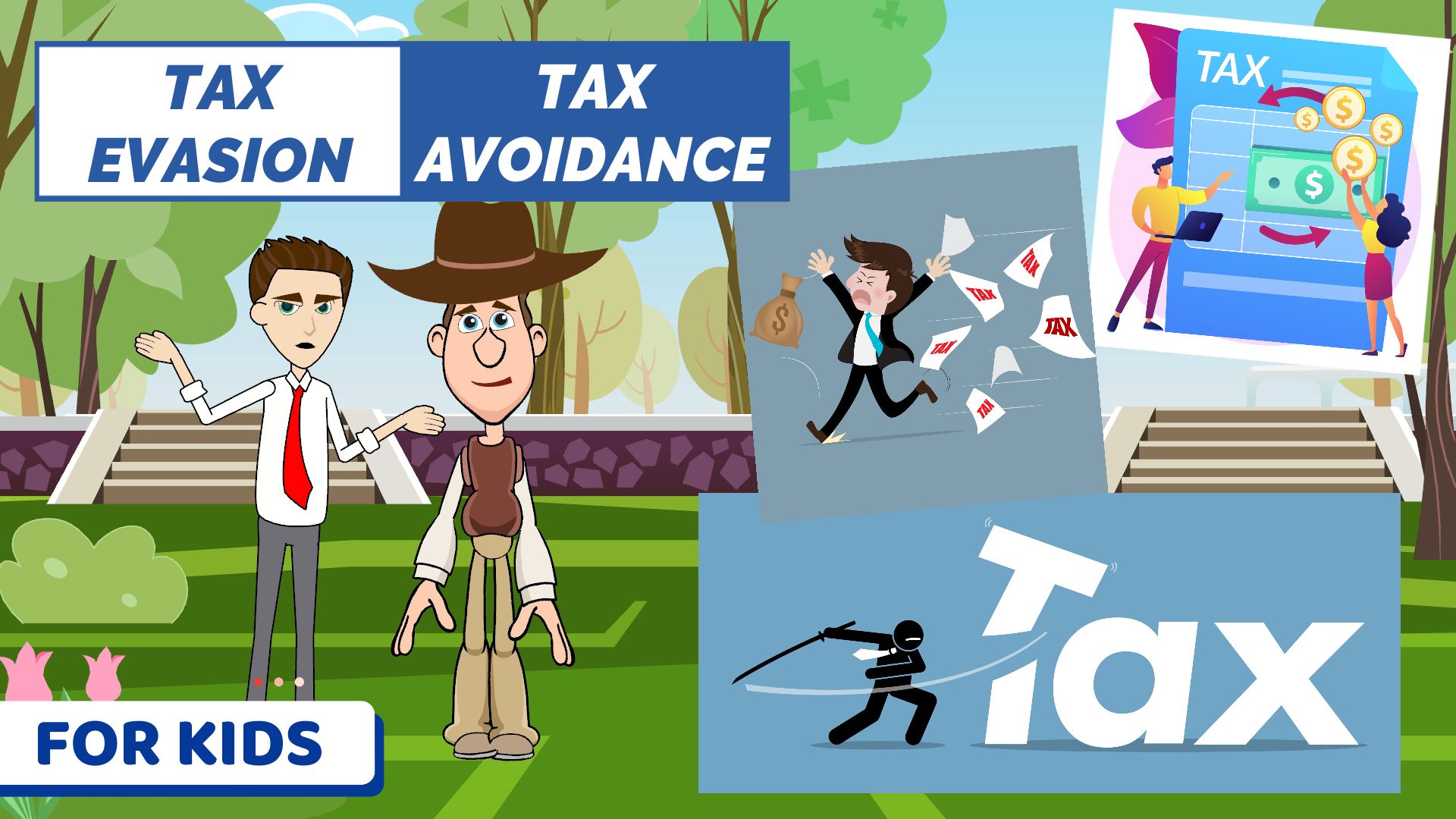Introduction to Investing for Kids and Teens
This video presents a Tax Evasion vs Tax Avoidance comparison in a simple, concise way for kids and beginners. It could be used by kids & teens to learn about Tax Evasion and Tax Avoidance, or used as a money & personal finance resource by parents and teachers as part of a Financial Literacy course or K-12 curriculum.

Suitable for students from grade levels:
- Kindergarten
- Elementary School
- Middle School
- High School
The topics covered are:
- What is tax evasion
- What is tax avoidance
- Tax avoidance: Should I pursue that
- How can I remember which is which
What is tax evasion?

Tax evasion is when someone intentionally hides income or other important information from their country’s tax authority.
Some examples of this are under-reporting income, not filing tax returns, and not reporting income from some sources – like tips.
Tax evasion is illegal, and the penalty for tax evasion can range from hefty fines to time in prison.
What is tax avoidance?
Tax avoidance is when someone reduces the amount of tax they have to pay, by smartly using the provisions of the law. Tax avoidance is completely legal, and there is no punishment for doing it.
Tax avoidance techniques include itemizing your expenses, taking advantage of tax deductions for interest or charitable donations, claiming tax credits – like child and dependent care credit, using tax advantaged accounts like 401k, Roth IRA, and 529, etc.
Tax avoidance is legal, but it’s still bad, right?
Not at all! Using tax avoidance strategies to legally lower your tax bill will not only help you save money on your taxes and maximize your post-tax income, but will not have any negative consequences whatsoever!
In fact, it is often encouraged – for example, allowing mortgage interest deduction promotes home ownership, and childcare expense credit helps primary caregivers go back to work.
So tax avoidance is not just completely legal but actually good!

How can I remember which is which?
You can think of tax evasion as evading the authorities and illegally paying less tax.
And you can think of tax avoidance as legally avoiding paying any more tax than you have to.
Download Transcript: Ideal for Use by Teachers in their Lesson Plan to Teach Kids & Teens
Podcast: Tax Evasion vs Tax Avoidance
Fun, informative and concise episodes by a 10-year old, breaking down complex financial concepts in a way that kids and beginners can understand. Episodes cover personal finance topics like saving, investing, banking, credit cards, insurance, real estate, mortgage, retirement planning, 401k, stocks, bonds, income tax, and more, and are in the form of a conversation between a cowboy (a finance novice) and his friend, a stock broker. Making finance your friend, only at Easy Peasy Finance.
A little bit about me: I have been fascinated with the world of personal finance since I was 6! I love to read personal finance books, and keep myself updated on the latest by reading various personal finance magazines. My friends often ask me questions about finance because they find it complex and intimidating. That’s what inspired me to start my YouTube channel called Easy Peasy Finance when I was 8, and this podcast 2 years later.
A comprehensive tax evasion vs tax avoidance comparison: hat is tax evasion, What is tax avoidance, Tax evasion vs tax avoidance comparison, Tax avoidance is legal – but is it still bad, How to remember what’s tax evasion and what’s tax avoidance, and more.
Show notes and transcripts at: https://www.easypeasyfinance.com/tax-evasion-vs-tax-avoidance-for-kids/


